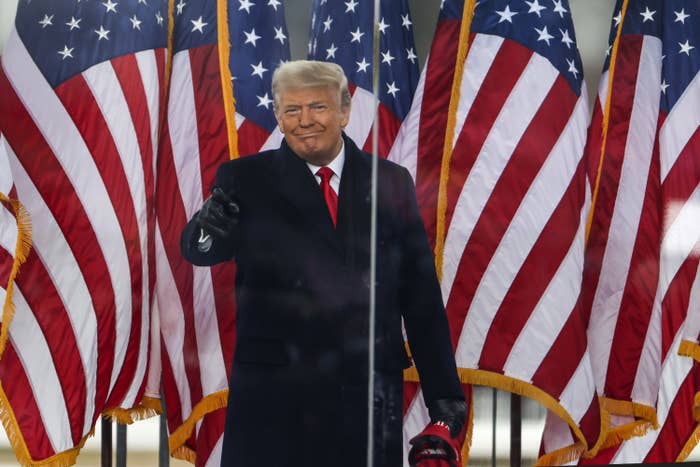
WASHINGTON — There was a burst of energy in the Senate last month to block future attempts to overturn electoral college votes and steal a presidential election. But that momentum has stalled and no bill is expected anytime soon.
A bipartisan group of senators has been negotiating how to prevent a vice president from overturning election results during the electoral college count. Former president Donald Trump and his allies hoped to exploit legal ambiguities in January 2021 to overturn his loss to Joe Biden. That plan ultimately went nowhere as then–vice president Mike Pence and Senate Republican leaders refused to go along with the plot.
After the Democrats failed to get enough votes to pass their voting rights bill last month, talks quickly began on a bipartisan bill to fix the process of certifying elections. But early enthusiasm around finding bipartisan agreement to change election laws has now settled into a long slog of figuring out how to actually do it.
The timeline is now being talked about in terms of months or even years.
“Oh, it’s a long way to go,” said Sen. Mitt Romney, a Republican involved in negotiations. “But it doesn’t get called into question until 2024 so we have plenty of time to work on it.”
Bipartisan efforts often collapse because of politics, but both sides are indicating that is not the case here. The will is there, they say. The problem is how complicated the issue is.
“We’ve still got a lot of research to do. It’s a lot of work. We’re meeting regularly, we’re talking to experts, we’re making progress. But it’s a ways to go,” said Sen. Susan Collins, who is leading the Republican side.
Senators are looking to amend the Electoral Count Act, a 135-year-old arcane and often confusing document that lays out how election disputes are settled. The law states that the sitting vice president will preside over the Senate when it counts electoral college votes on Jan. 6. Traditionally, this role has been ceremonial. But Trump argued — and continues to argue — that the vice president has the power to become actively involved and reject electors sent by the states.
There seems to be clearly enough support across both parties to amend the law to clarify that the vice president’s role is only symbolic. Even Sen. Ron Johnson, a Republican who frequently repeated unverified claims about voter fraud, told BuzzFeed News he supports such a measure.
The problem is what else gets included. Politicians are trying to balance the powers, responsibilities, and limitations of three separate entities in a way that will avoid a constitutional crisis in future contested presidential elections.
You have the states, which are in charge of running elections, certifying the results, and sending slates of electors to Congress. These electors, making up the electoral college, ultimately select the next president.
You have Congress, whose role is to certify and count those electors.
Then you have the courts, which have been regularly brought in to moderate disputes in recent history, but which could be overruled by Congress.
Let’s say a state elects one party locally, but votes for the other party’s candidate in a presidential election. What happens if the state government overturns those results, citing “fraud” or “irregularities,” and sends a slate of electors that supports their candidate? Can Congress overrule a state legislature?
“It depends,” said Republican Sen. Todd Young, one senator involved in talks. Appearing to realize this wasn’t the most reassuring answer, Young added, “Sorry, but it’s true, though.”
Trump has spent the last weeks railing against any attempt to change the law — and any Republican supportive of the process. “The reason they want it changed is because they now say they don’t want the Vice President to have the right to ensure an honest vote,” he said in a statement on Feb. 4. “In other words, I was right and everyone knows it.”
Republican Sen. Roy Blunt said that the reform bill, whenever it gets written, is expected to go through regular order. That means going before the Senate Rules Committee for study, then an eventual floor vote. No one involved is giving a timeline for when even the first stage could be complete.
“A lot of discussion, research going on,” said Angus King, the lead Democrat on the bipartisan talks.

